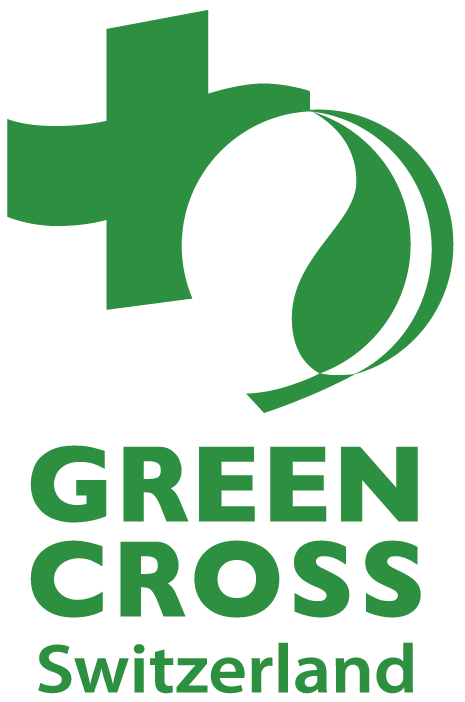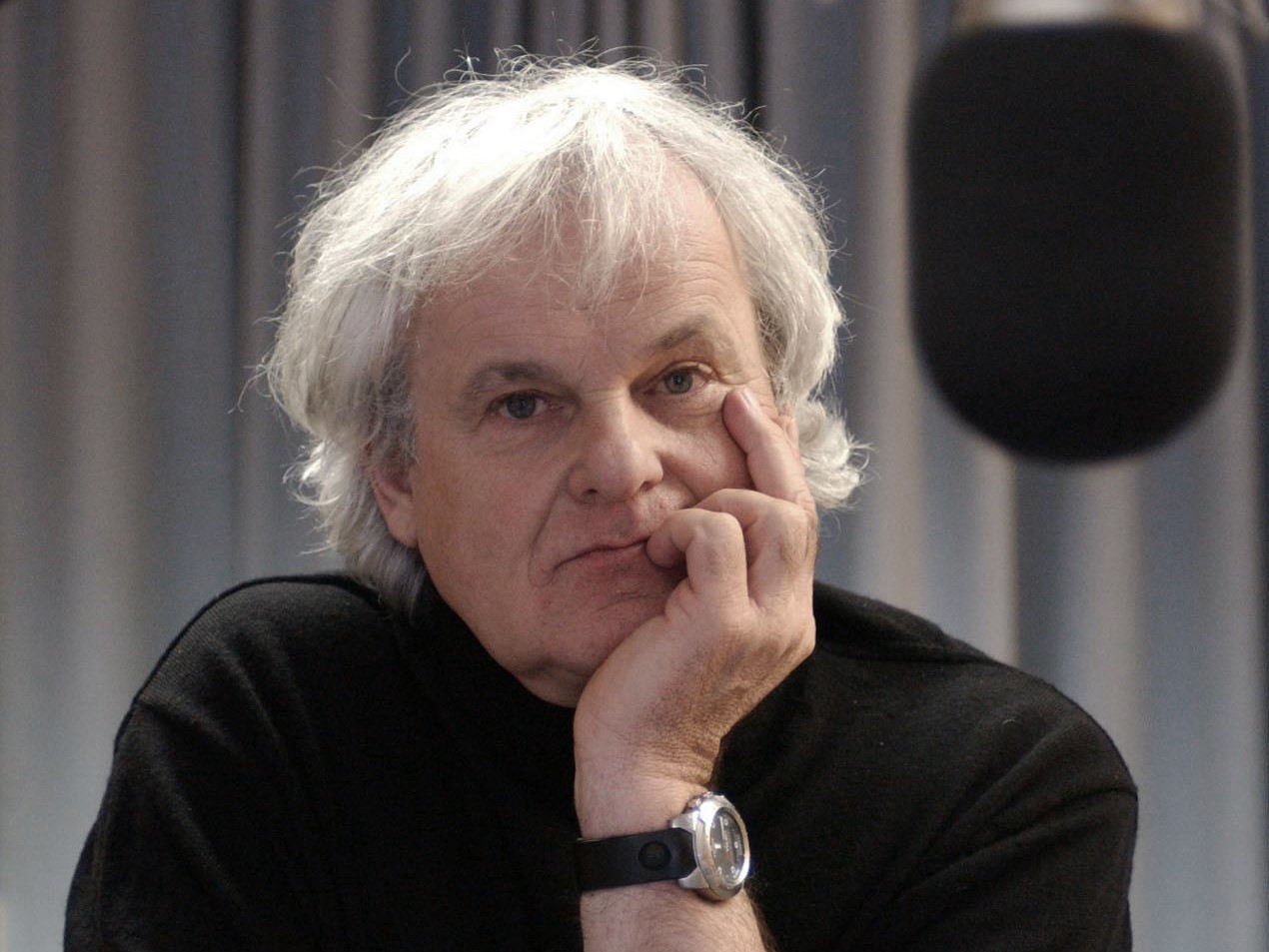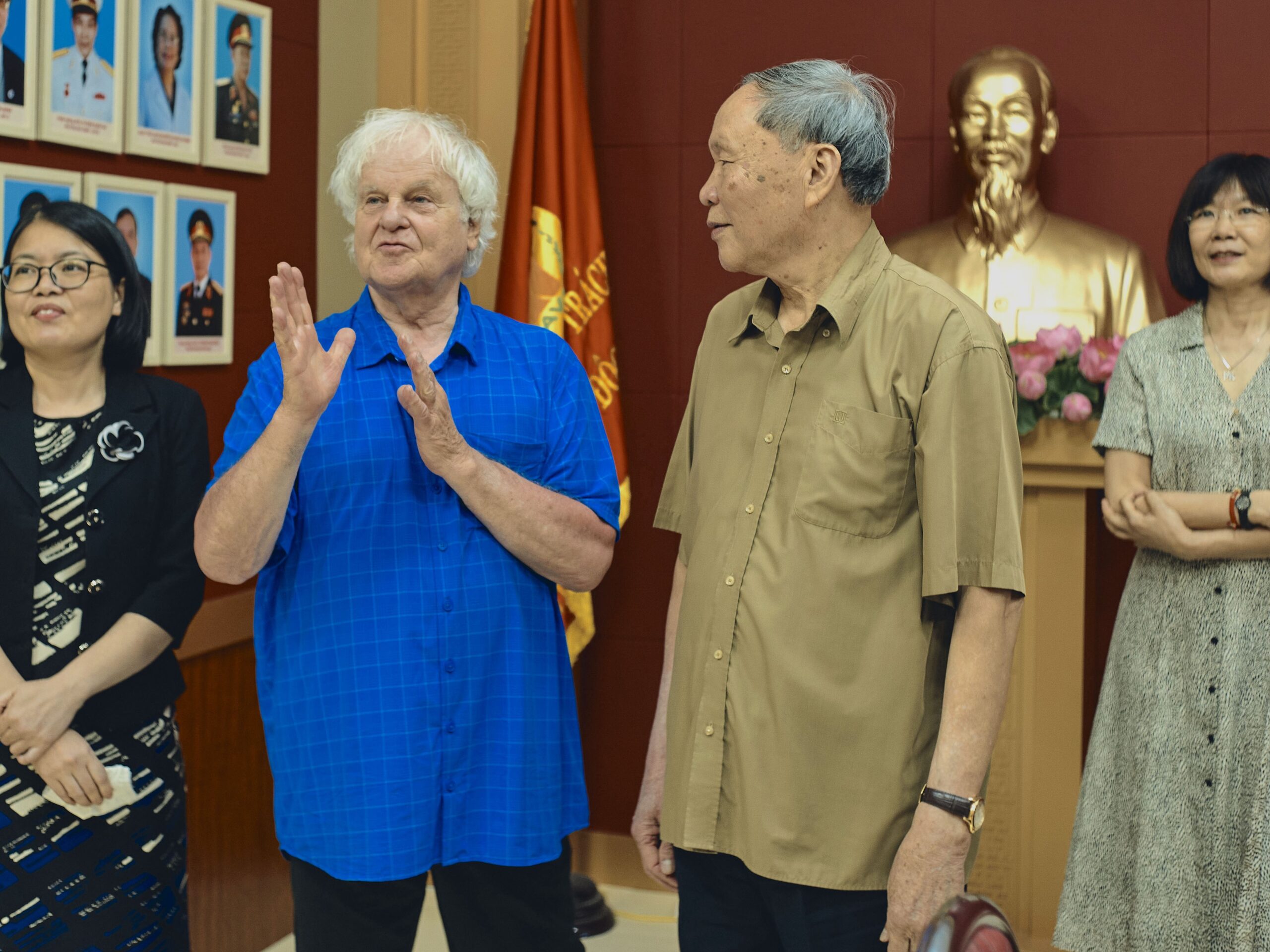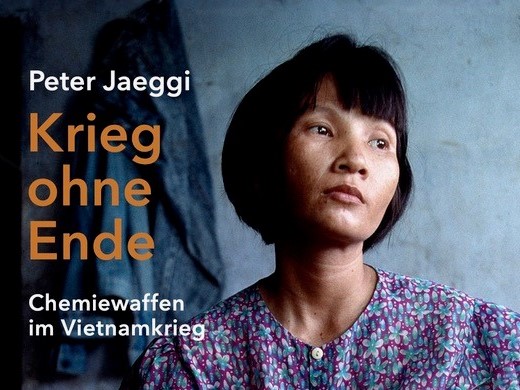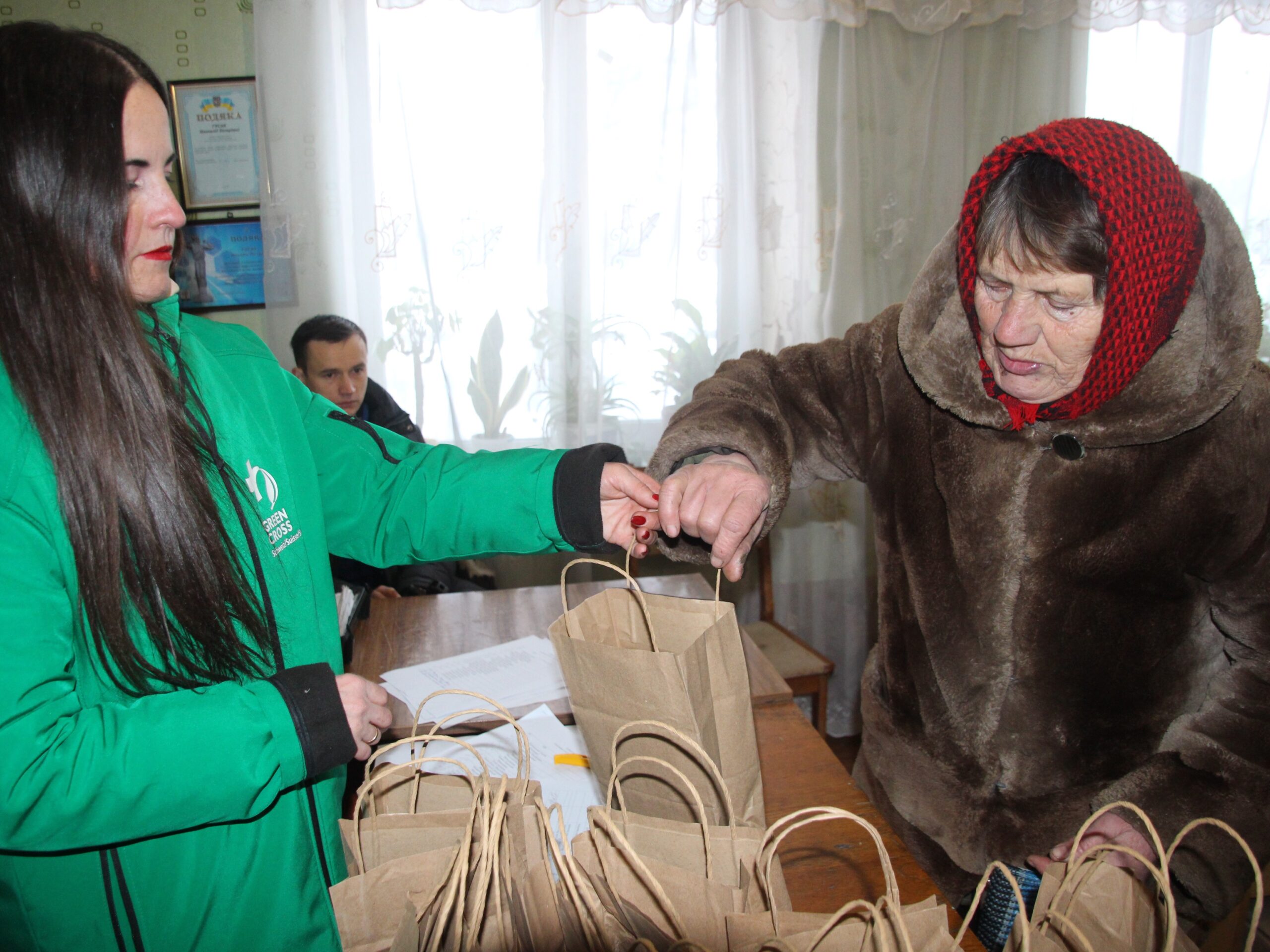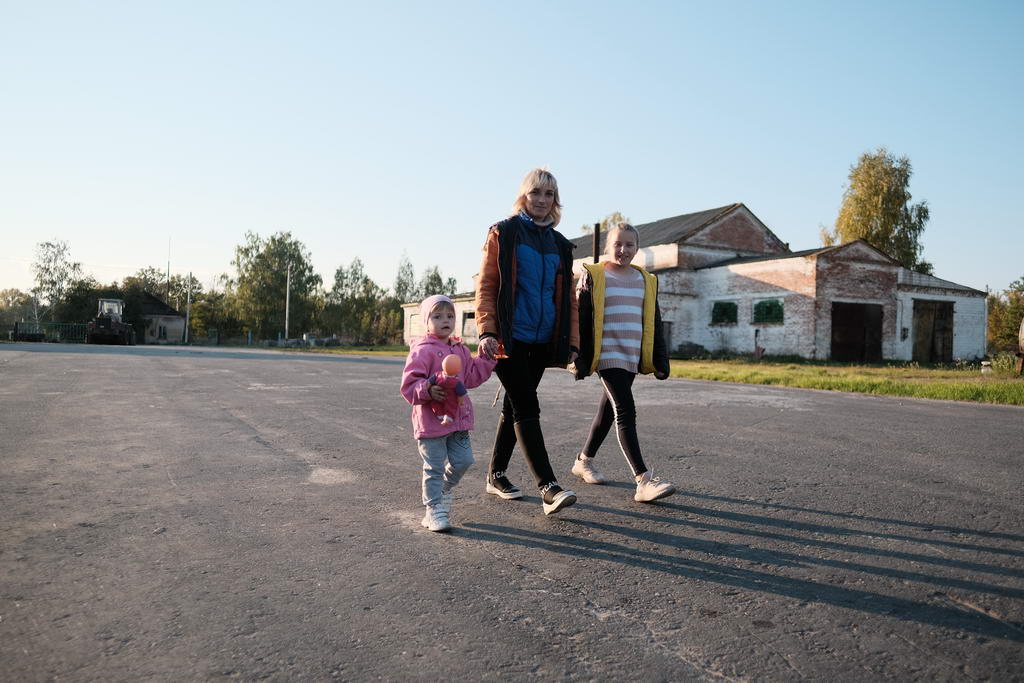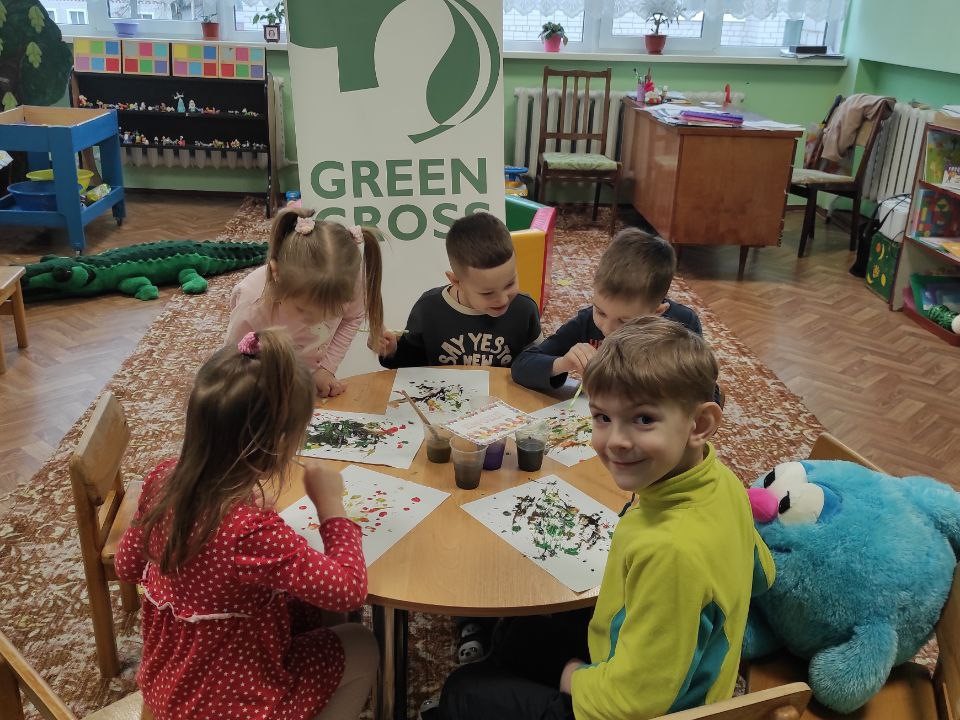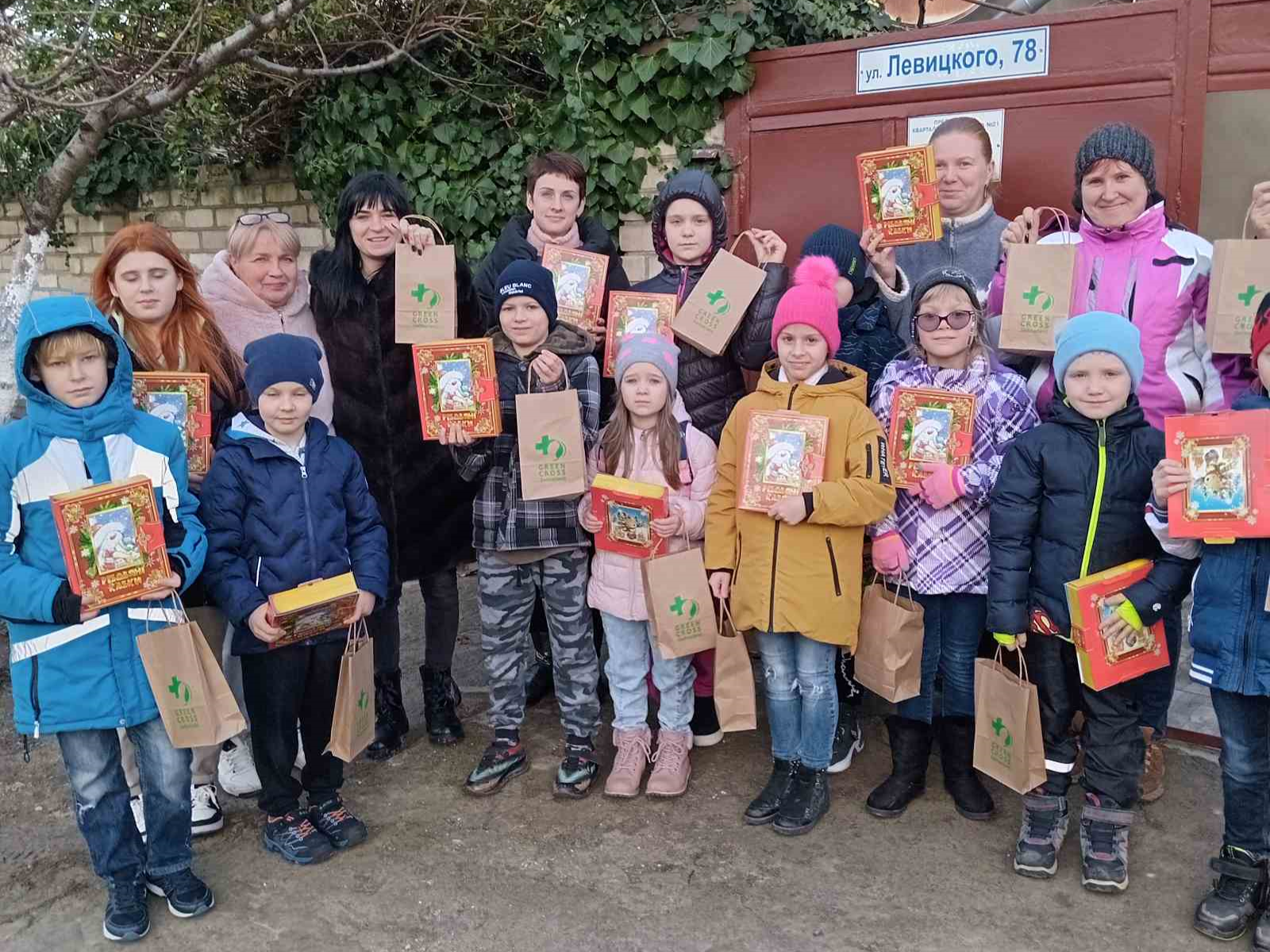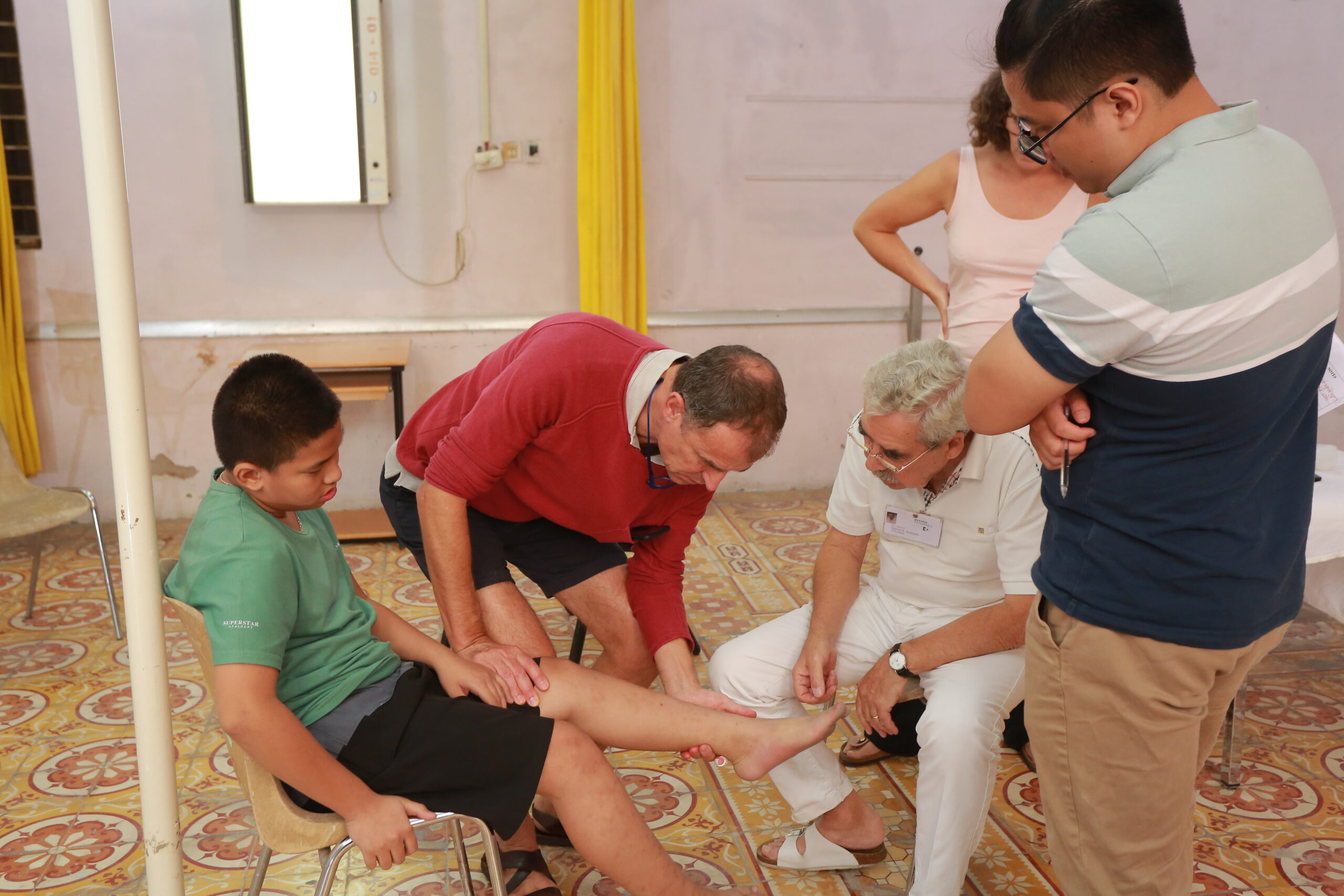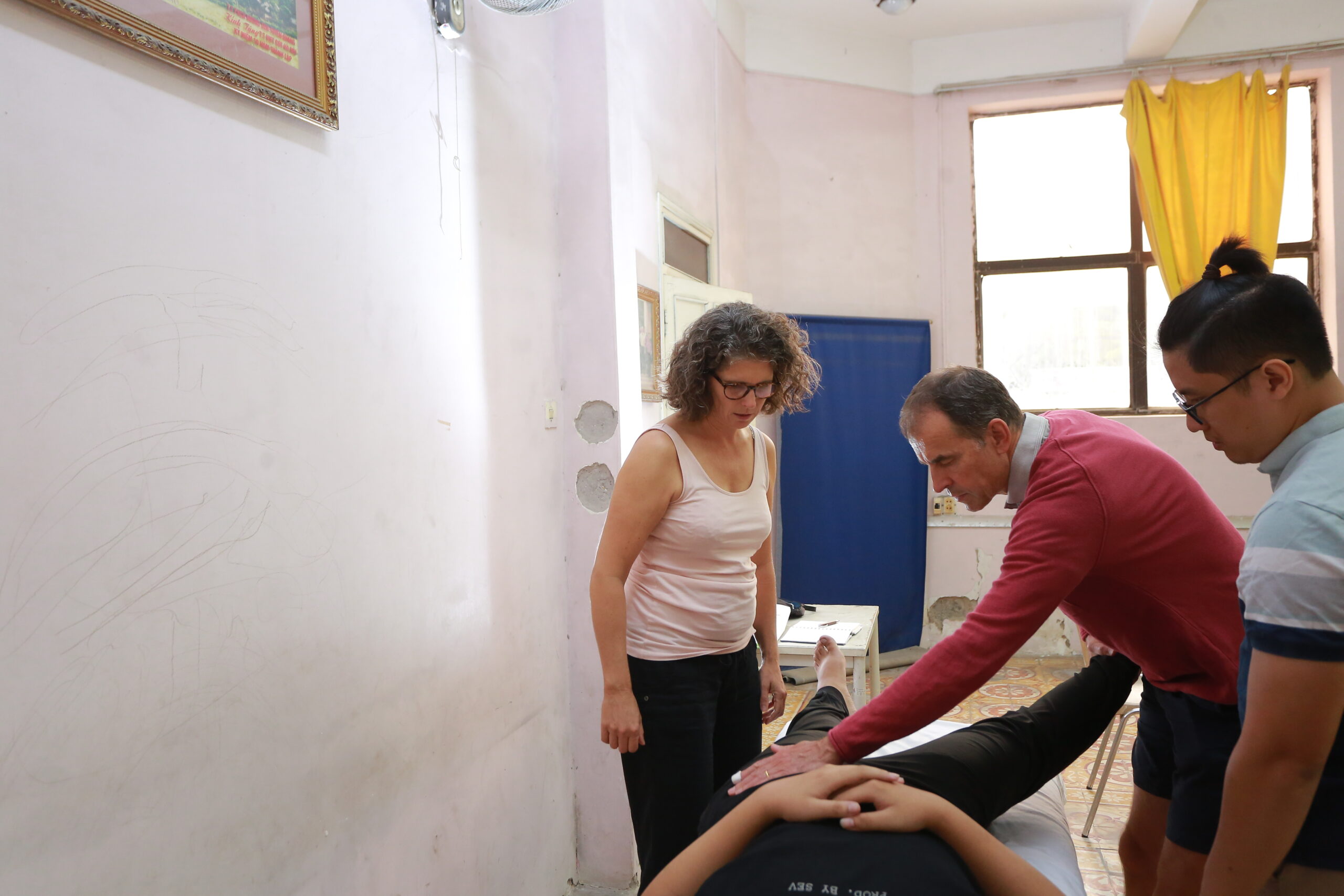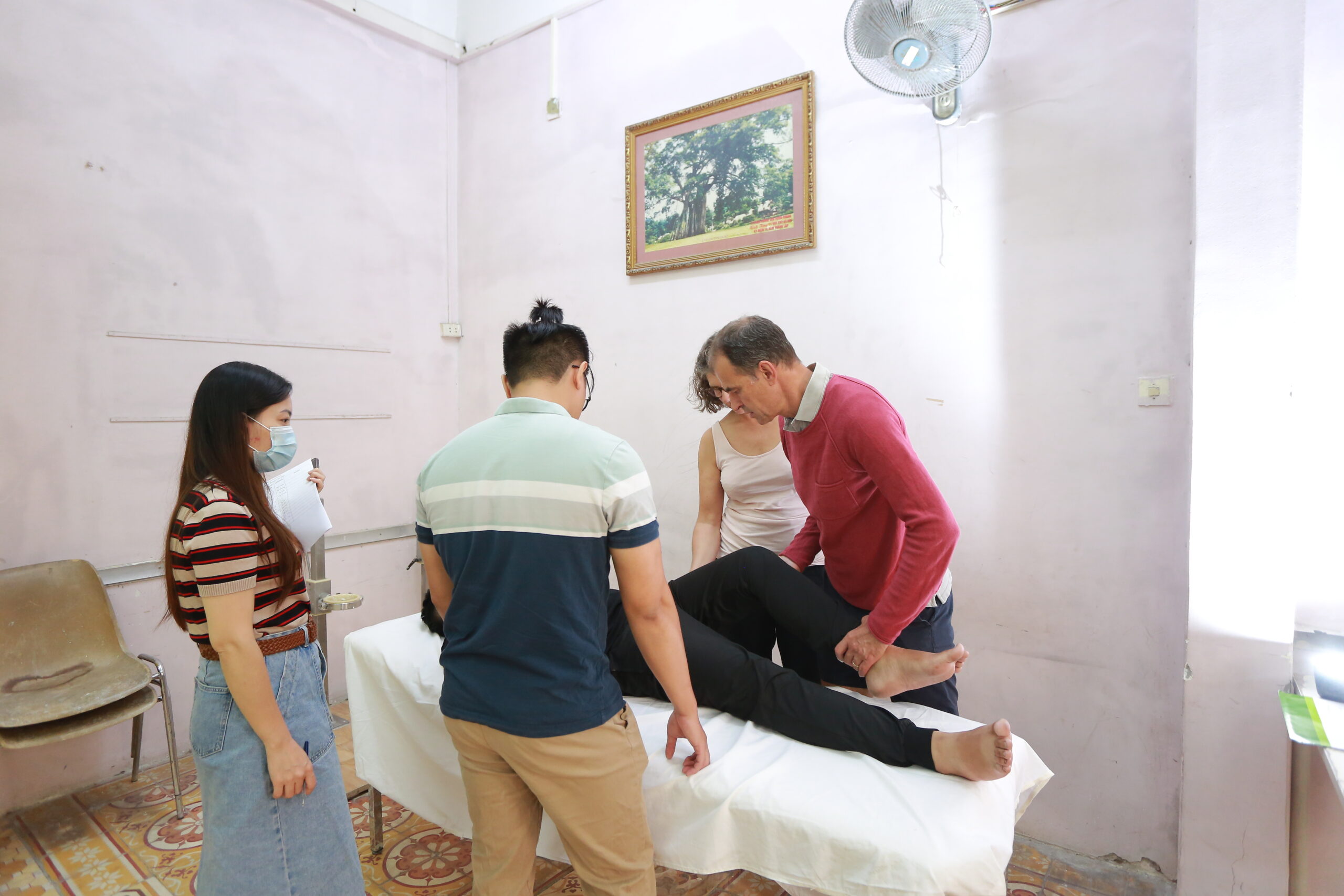Freelance journalist, photographer, and filmmaker Peter Jaeggi has dedicated himself to extensively researching the effects of disasters. His latest book, titled “Krieg ohne Ende (War Without End),” delves into the enduring consequences of the use of the highly toxic herbicide ‘Agent Orange’ during the Vietnam War. Jaeggi’s work serves to raise awareness of these long-term repercussions. It is a contribution to ensuring that those affected are not forgotten.
In an interview with Green Cross Switzerland, Peter Jaeggi offers insights into his latest book, distinguished by meticulous on-site research.
What inspired you to write this book, and why is it personally significant to you?
It all began with Roland Wiederkehr. I had known the former National Councillor and founder of Green Cross Switzerland long before its inception, back when he served as the first managing director of the Swiss WWF. In the late 1990s, Roland Wiederkehr invited me to Belarus on behalf of Green Cross to document the long-term effects of the Chernobyl disaster. Belarus bore the brunt of the catastrophic meltdown. Green Cross also sent me to Vietnam to investigate the long-term consequences of the Vietnam War. My first book on the subject was published in 2000 under the title “When My Child Was Born, I Was Very Sad.” This second extensive journalistic endeavor has stayed with me ever since. The new book, “Krieg ohne Ende,” marks my third exploration of the use of chemical weapons during that time.
While crafting your book, you embarked on comprehensive on-site research, conducting numerous interviews with individuals affected by Agent Orange. Is there a particular encounter that left a lasting impression on you?
There are many. During our initial research expedition, we met Phan Thi Cuc, a young mother, and her three children. The sight of the two older children, born with enormous deformities, was deeply distressing. I had never witnessed such severe deformities in a human being. Their father had been exposed to Agent Orange, containing dioxin, during the war, resulting in genetic damage. He was unable to bear the sight of his disabled children and tragically ended his own life – using a pesticide. Most interactions with victims and their families get under your skin. Many of the affected individuals require constant care, often amidst financial hardship and a lack of external support. This struggle often spans decades, as the children age and suitable facilities remain scarce.
You assert: “An encyclopaedia illustrates: Half the world was embroiled in the Vietnam War.” Could you illustrate what you mean by this?
Here are just a few examples: Switzerland provided time fuses and Pilatus Porter airplanes, which were utilized for bomb drops and capable of being outfitted with machine guns. Alongside Americans, soldiers from Australia, New Zealand, Canada, and South Korea were actively engaged on the frontlines in Vietnam. East Germany established an air defense system, while West Germany dispatched thousands of technicians, including specialists in weapon systems. The Japanese island of Okinawa served as the primary airbase for the United States during the Vietnam War. Over a thousand nuclear bombs, as well as nerve gas and Agent Orange, were stockpiled there.
The central and indispensable main theme of your book revolves around the victims of Agent Orange. Was it especially significant for you to amplify the voices of these victims, who are often swiftly forgotten, irrespective of conflicts?
Disasters and wars don’t just conclude when the weapons cease firing, especially not for the victims. As exemplified by Vietnam, wars can inflict enduring harm on both individuals and the environment for generations. The Vietnamese victims’ association, VAVA, is already talking about the fifth generation of children born with Agent Orange-related disabilities. It is impossible to predict how many more generations will be affected. What is paramount is that the plight of these victims doesn’t fade into obscurity and that we raise awareness of their suffering.
How do you evaluate the current situation of affected individuals in Vietnam?
I have consistently asked war veterans about their feelings toward the United States today. Almost universally, their initial response has been: “What’s done is done. One must suppress one’s feelings to move forward, to look ahead.” But is this truly reflective of their heartfelt emotions? In traditional Vietnamese culture, the expression of pain and grief is frequently veiled in silence. Conversing with war victims over time frequently reveals a sense of disappointment that Washington has never issued an apology for the war. While the U.S. has been assisting in the cleanup of heavily contaminated Agent Orange hotspots for years, with hundreds of millions invested, many of those affected have voiced grievances during my interviews, asserting that victims are being neglected and are not receiving adequate support.
What do you believe is necessary today to do right by the victims of this disaster?
There is a pressing need for increased financial support to enable affected families to live with dignity. For example, overwhelmed parents require the help of caregivers. More commitment from the U.S. is urgently needed here – but also the Vietnamese state itself. Additionally, there is a lack of reliable statistics on the number of victims, which is crucial for planning assistance effectively. How can efficient aid be provided when the actual number of victims remains unknown? – The head physician of a large hospital complained in an interview about the incomplete training of his doctors. According to him, timely recognition and treatment of birth defects pose significant challenges. However, early detection by a professional is crucial for the long-term health outcomes of affected individuals.
In your book, you also discuss the plight of affected veterans. How has the situation evolved for (U.S.) military personnel?
It’s often overlooked that hundreds of thousands of American veterans from the Vietnam War are also grappling with the effects of Agent Orange exposure. In the U.S., a veteran is not required to prove that their suffering is directly linked to Agent Orange; it is sufficient for them to demonstrate their service during the Vietnam War for their medical treatment to be covered. In contrast, the U.S. demands proof from Vietnamese Agent Orange victims, which cannot be feasibly provided based on stringent scientific criteria. For instance, determining the extent to which poisoning resulted from Agent Orange versus other sources is impossible. This is a key factor that has driven Washington and U.S. courts to consistently reject compensation claims thus far. Consequently, in the eyes of official America, there exist two categories of Agent Orange victims: domestic veterans, some of whom are acknowledged as suffering from Agent Orange-related illnesses, and Vietnamese veterans, whom Washington refuses to recognize as victims of poisoning. American Vietnam War veteran Chuck Searcy denounces this disparity as a “criminal double standard.” Searcy is one of the former soldiers who chose to remain in Vietnam and are doing great humanitarian work there. Notably, he co-founded “Project Renew,” an NGO that is dedicated to detecting and disposing of unexploded ordnance, thereby saving innumerable lives.
You also deal with the necessary judicial proceedings, which often resemble a “David versus Goliath” battle. Nearly all claims for compensation against the manufacturers of Agent Orange are dismissed on the basis that a direct link between Agent Orange and deformities cannot be established. Is there any hope for the continuation of these lawsuits in the future?
Currently, there is significant optimism surrounding the ongoing legal proceedings initiated by Vietnamese-French environmental activist Tran To Nga. As a former “Vietcong,” a term used derogatorily to refer to members of the National Front for the Liberation of South Vietnam, she filed a lawsuit against the largest manufacturers of Agent Orange for damages in 2014. Initially, Tran To Nga lost the case after years of protracted legal battles, marked by occasionally sensational claims. In 2021, the court of first instance in Évry justified its ruling by stating that companies acting on behalf of the state were entitled to immunity from prosecution. However, the 82-year-old’s legal team has appealed the decision. France’s highest court of appeal in Paris is set to deliver what probably will be the final verdict this May. – Why is the trial taking place in France? Because French legislation has a unique characteristic: in France, unlike in other countries, individuals can also file lawsuits against a foreign state if it causes harm to a citizen.
To mitigate the risk of Agent Orange, it’s crucial to decontaminate the soil in dioxin hotspots. The U.S. has invested millions in this effort. However, some experts question the effectiveness of the decontamination method employed. Could you elaborate on this further?
In 2018, the former U.S. airbase and Agent Orange transshipment center in Da Nang completed a cleanup costing around 110 million euros. Official reports state that the dioxin-contaminated soil was heated to 360 degrees to neutralize the toxin into harmless compounds. However, during the process, some of the dioxin-containing fumes escaped into the air, recontaminating the surrounding area. The extent of this contamination remains unknown. – Currently, the largest decontamination operation is underway approximately 500 kilometers further south, in Bien Hoa, using the same method. Lorenz Adrian from the Helmholtz Centre for Environmental Research in Leipzig, who has been at the forefront of dioxin research for decades, criticizes the method used in Da Nang and now in Bien Hoa. He argues that complete destruction of the dioxin is unachievable with the heat process. Adrian has proposed an alternative solution to the Vietnamese government. This solution seems surprising at first glance, but he deems it safe: With the aid of specialized bacteria, it can be ensured that even highly hazardous toxins in the soil are rendered biologically harmless. According to Adrian, this method is applicable even in urban areas, and all that is required is a borehole, followed by the introduction of bacteria—and patience. Although it takes many years for dioxin to degrade, the process is safe and significantly more cost-effective than the thermal method.
What have you personally gleaned from your extensive experience with this issue, particularly concerning other global hotspots?
Allow me to respond with a question of my own. In the wake of catastrophic wars such as those in Vietnam, and amidst ongoing conflicts globally, the rallying cry of “No more war, ever!” seems the most natural, logical, and morally imperative sentiment. Yet, why does war persist? Could a portion of the answer lie in educational deficiencies? The reason this has crossed my mind is recent reports detailing how some Swiss schoolchildren view Hitler as an iconic figure. It’s unfathomable!
The Agent Orange photos accompanying Peter Jaeggi’s works have been realised since 1999 by award-winning Basel photographer Roland Schmid https://www.schmidroland.ch/
